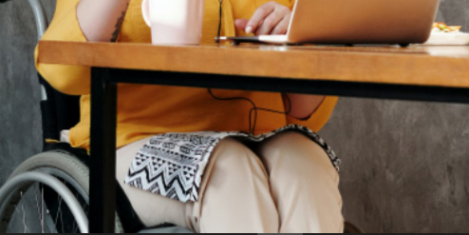To provide the best experiences, we use technologies like cookies to store and/or access device information. Consenting to these technologies will allow us to process data such as browsing behaviour or unique IDs on this site. Not consenting or withdrawing consent, may adversely affect certain features and functions.
The technical storage or access is strictly necessary for the legitimate purpose of enabling the use of a specific service explicitly requested by the subscriber or user, or for the sole purpose of carrying out the transmission of a communication over an electronic communications network.
The technical storage or access is necessary for the legitimate purpose of storing preferences that are not requested by the subscriber or user.
The technical storage or access that is used exclusively for statistical purposes.
The technical storage or access that is used exclusively for anonymous statistical purposes. Without a subpoena, voluntary compliance on the part of your Internet Service Provider, or additional records from a third party, information stored or retrieved for this purpose alone cannot usually be used to identify you.
The technical storage or access is required to create user profiles to send advertising, or to track the user on a website or across several websites for similar marketing purposes.
 Older workers are much more concerned than their younger colleagues about the health risks of returning to office based working, a survey claims. The study commissioned by manufacturing firm Airdri, suggests that just 16 percent of under 24s are worried about indoor air quality and picking up germs from colleagues/communal areas on returning to work. In comparison, 43 percent of over 25s, around a third of 35–44-year-olds (34 percent), 35 percent of 45–54-year-olds, and 41 percent of over 55s agreed, showing a big disparity in the opinions of the younger age groups. (more…)
Older workers are much more concerned than their younger colleagues about the health risks of returning to office based working, a survey claims. The study commissioned by manufacturing firm Airdri, suggests that just 16 percent of under 24s are worried about indoor air quality and picking up germs from colleagues/communal areas on returning to work. In comparison, 43 percent of over 25s, around a third of 35–44-year-olds (34 percent), 35 percent of 45–54-year-olds, and 41 percent of over 55s agreed, showing a big disparity in the opinions of the younger age groups. (more…)












 Putting in overtime often comes at a cost of stress, burnout and depression. But extra work doesn’t always negatively affect wellbeing. In fact, according to recent research from academics
Putting in overtime often comes at a cost of stress, burnout and depression. But extra work doesn’t always negatively affect wellbeing. In fact, according to recent research from academics 
 Around two thirds of professionals say they are ‘highly likely’ to leave their job this year due to a lack of face time with leaders within their organisation. Following the announcement yesterday from Government that working-from-home restrictions will be dropped, an annual employee survey from recruiter
Around two thirds of professionals say they are ‘highly likely’ to leave their job this year due to a lack of face time with leaders within their organisation. Following the announcement yesterday from Government that working-from-home restrictions will be dropped, an annual employee survey from recruiter 


 Nearly two-thirds of employees who claim to have experienced a toxic workplace culture say the compensation they received did not make up for the emotional distress caused, according to new research from
Nearly two-thirds of employees who claim to have experienced a toxic workplace culture say the compensation they received did not make up for the emotional distress caused, according to new research from 
 Microsoft’s new
Microsoft’s new 







January 11, 2022
Great Resignation offers firms a chance to create the Great Retention
by Erin Eatough • Comment, Flexible working, Wellbeing, Working culture